Will the International Olympic Committee stand with athletes or Big Oil?
Martin Zavan
The campaign to end fossil fuel sponsorship of the Olympic Games has escalated rapidly in recent weeks, placing the International Olympic Committee (IOC) under growing public pressure. It began with a simple question: How can a company whose core business is fuelling the climate crisis, sponsor the Winter Olympics, an event that depends on stable snow and ice? Greenpeace Italy launched a satirical video exposing the contradiction at the heart of Eni’s sponsorship of the Milan Cortina 2026 Winter Olympic and Paralympic Games. Eni is one of the biggest oil and gas companies in the world. It highlighted the absurdity of a fossil fuel giant associating itself with winter sport while its emissions contribute to shrinking snow seasons and melting glaciers. It struck a chord. The video, which generated over 3.5 million views across digital platforms, was shared by professional athletes Swedish skier Emelie Forsberg and British ultra runner Damian Hall, and triggered widespread international media coverage. The satire is backed up by science. As things are, by the 2080s more than half of suitable locations will be unable to host the Winter Olympics, according to a rigorous 2024 scientific study commissioned by the IOC. Eni’s annual fossil fuel emissions could melt enough glacier ice to fill 2.5 million Olympic swimming pools, according to research that shows that for every 1 kg of CO2 we put into the air, we eventually lose about 15.8 kg of glacier ice. Shortly after the video release, Greenpeace Italy took the message to the streets of Milan. In Piazza Duomo, activists installed Olympic Rings appearing to drip oil. The visual was stark and deliberate. The Olympic Rings should represent excellence and respect. Instead, they are being used to soften the image of a company whose business model depends on expanding oil and gas production. The installation again drew extensive global media attention. At the same time, Ski Fossil Free, led by Norwegian skier and filmmaker Nikolai Schirmer, delivered a petition with more than 21,000 signatures, including Olympians, to the IOC. Separately, a campaign led by athletes by For Future Games called for an end to fossil fuel sponsorship. Greenpeace supporters have also mobilised in large numbers, adding their voices to the demand through a petition. When the issue was raised directly with IOC President Kirsty Coventry at a daily press briefing, rather than engaging with the substance of the concerns, Coventry responded with general statements that the IOC is always trying to do better and that she welcomes athletes having a voice. Welcoming athletes’ voices is not the same as responding to them. Athletes, fans and winter communities are asking the IOC to end partnerships that allow fossil fuel corporations to use the Olympic brand as a tool for greenwashing. To sidestep that request while praising participation is not leadership. It diminishes the severity of the concerns being raised. Eni’s role in the climate crisis is real and undisputed by anyone not in the pocket of Big Oil. Oil and gas corporations like Eni reportedly spend tens of millions of dollars on sporting sponsorships to distract from the environmental damage caused by their operations. Greenpeace Italy is currently being sued by Eni after stating that the company harms people. That statement was based on a Greenpeace Netherlands calculation that Eni’s self reported 2022 emissions could cause 27,000 excess deaths due to increased temperature alone before the end of the century. Instead of addressing the evidence, Eni has turned to legal intimidation. Against this backdrop, fossil fuel sponsorship of the Winter Games makes a mockery of the Olympic values of respect for people and the environment. The climate crisis is already placing mountain communities and winter tourism under strain. The ski industry supports millions of livelihoods across Europe, and 60 million Europeans ski each year. Without a rapid transition away from fossil fuels, winter sports face an existential threat. Public concern is not limited to a single action. In Milan, Greenpeace Italy joined a broad coalition of civil society groups at a protest rally highlighting the unsustainable nature and climate impact of the Games. Greenpeace’s message from that demonstration was clear: ‘Protect the integrity of the Olympics. Do not allow them to become a platform for polluters.’ From the outset, Greenpeace International and Greenpeace Italy have offered the IOC a constructive path forward sending them an open letter. The Olympic movement has previously shown leadership by banning tobacco advertising. It can do so again by ending fossil fuel sponsorship across all Olympic and Paralympic Games. The IOC occupies a unique position of global influence. Choosing integrity over greenwashing would send a powerful signal far beyond sport. Fossil fuel companies are greenwashing their image by sponsoring big sporting events to hide their destruction. Don’t let them get away with it. Eni is responsible for its pollution. But the IOC is responsible for the partners it chooses. By continuing to accept fossil fuel sponsorship, it risks becoming complicit in polishing the public image of companies whose core business threatens the future of the very Games they sponsor. The question now is simple: Will the IOC listen to athletes, fans and scientists and end fossil fuel sponsorship? Or will it continue to shelter planet heating corporations behind the Olympic Rings? Martin Zavan is a freelance communications specialist with Greenpeace International, based in Sydney, Australia. This blog was edited on 19 February 2026 to reflect that the ‘Oilympics’ video garnered over 3.5 million views and not nearly 7 million views as originally reported. Texte intégral (1991 mots)
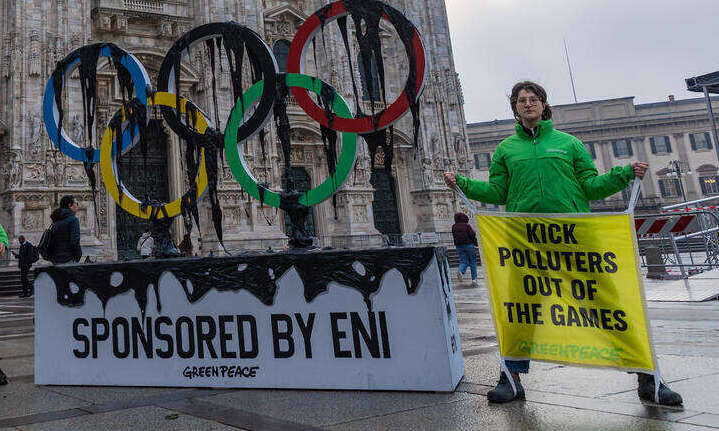
Talking FACTS, not feelings
Eni’s history of greenwashing
Stop Eni’s Olympics sponsorship

From words to action: Governments must use the UN tax talks to deliver fair global tax rules and climate finance
Greenpeace International
New York, United States – As the fourth round of UN Tax Convention negotiations concluded on Friday, governments face a defining choice: seize this once-in-a-generation opportunity to reform global tax rules so they work for people and planet – or retreat to defending systems that are failing to deliver fairness, justice and adequate revenues for combating the most pressing challenges of today.[1] Nina Stros, Global Senior Policy Expert at Greenpeace International’s Political Unit, said: “This round of UN Tax Convention negotiations saw the liveliest debates so far on reforming global tax rules to enhance climate action, sustainable development and hold the super-rich to account. It’s clear that the game is now on for securing a strong outcome on taxing the world’s biggest polluters. “As fossil fuel-driven floods, storms and hurricanes hit more and more countries, and inequality widens as the world approaches its first trillionaire, negotiators are starting to wake up to the huge opportunity. The UN Tax Convention is a once-in-a-generation chance to shift investment away from polluting activities, redistribute wealth, and raise hundreds of billions for climate resilience and public services – without adding to the tax burdens of citizens and consumers.” Greenpeace International’s key takeaways from INC-4: “Action on fair global tax rules that hold polluters to account is a no-brainer. Countries are losing hundreds of billions of dollars each year to multinational and super-rich profit shifting. This action is also hugely popular with the public across right and left-wing voters, as extensive polling has shown. Governments must not settle for vague language that protects the status quo, a fair and sustainable economy is at stake,” Stros adds. The Intergovernmental Negotiating Committee (INC) Fifth Session will be from 3 to 13 August 2026 in New York. ENDS Notes [1] New global tax rules in an UN Framework Convention on International Tax Cooperation are being negotiated until 2027. It aims to take control of global tax rules from the rich OECD countries and place it in the hands of the 193 member states of the United Nations. Contacts Lee Kuen, Global Comms Lead – Fair Share campaign, Greenpeace International. +601112527489, lkuen@greenpeace.org Greenpeace International Press Desk, pressdesk.int@greenpeace.org, +31 (0)20 718 2470 (available 24 hours) Texte intégral (604 mots)
Waves of Hope: our seven wishes for the oceans in 2026
Taís Terra
In Brazil, there is an interesting myth: if you jump seven little waves during New Year’s Eve and ask for your wishes for the following year to come true, Iemanjá – an Orixá, a divine spirit or deity in the Yoruba religion of West Africa that is also part of Afro-Brazilian spiritual traditions – will bring you good energy to the year that is about to begin. So here’s our own wishlist for global ocean protection in 2026: The Global Oceans Treaty came into force on 17 January, after reaching the required 60 ratifications. The treaty agreement creates a legal framework to protect marine ecosystems in international waters and will allow, for example, the creation of marine protected areas and environmental impact studies of economic activities in the high seas. The first Oceans Conference of the Parties (COP) in the next year is an opportunity to transform intentions into plans and concrete priorities as part of a global plan. The scientific and environmental community will continue to apply pressure in the lead up that this first COP speeds up the conservation of highly vulnerable ecosystems. Part of the challenge of protecting the oceans is the amplification of marine protected areas on a global scale, a compromise agreed upon by countries when establishing the goal to protect at least 30% of oceans by 2030. In the South Atlantic Ocean, a strategic region for climate balance and marine biodiversity, this need becomes even more urgent. Along with having fragile ecosystems and fundamental migration routes, the area is profoundly connected to the lives of peoples who depend on the seas, whose traditional ways, knowledge and culture are inseparable from the ocean. Governments need to monitor and regulate activities such as fishing, tourism and environmental licencing on coastal regions. The oceans agenda must be integrated into critical 2026 elections to safeguard the public policies that take in consideration the ways of life of coastal communities, and their public health along with climate adaptation. In 2026, there will be various elections in about 60 countries around the world – some of them being general elections, as in Brazil and New Zealand, and others more specific, like in Colombia and the United States. Public policies directly influence ocean protection, including mangroves conservation, and reefs and beaches that are fundamental to the effective implementation of action towards ocean conservation. Oil exploitation in the Amazon river mouth has demonstrated real environmental risks. In January 2026, less than 3 months after the concession of the licence, a drilling fluid leak was registered during Petrobras activities. Although the Brazilian company confirmed that the material was under the limits of low toxicity, the incident has been taken to the National Agency of Petroleum, Natural Gas and Biofuels to request formal clarifications. Greenpeace Brazil has teamed up with eight other civil society organisations and networks from the Brazilian environmental, Indigenous, Quilombola, and artisanal fishing movements to take legal action in Amapá, an Amazon State, to cancel this licence, defending the precaution principle and the need to listen to local communities and the protection of one of the most sensitive marine ecosystems of the planet. In 2026, the International Seabed Authority (ISA) meeting in March may finalise rules that lead to the development of deep sea mining, an activity capable of causing irreversible damage to ecosystems that humans do not even yet understand. This will be a critical moment to reinforce the growing ask from countries in favour of the mining moratorium in deep ocean waters, as the US government already threatens to authorise The Metals Company permission to begin to exploit the Pacific Ocean, bypassing ISA discussions. Countries must make good use of these political spaces to cement decisions based on science while holding the cultural values that the ocean represents to coastal region people and the protection of marine biodiversity. Plastic pollution is recognised as one of the major threats to marine ecosystems, affecting human and ocean’s health. While finalisation of the Global Plastic Treaty, an agreement that will provide guidelines for confronting this kind of global pollution, was suspended last year, governments will need to reach a strong agreement when talks resume later this year. The protection of the oceans needs to guarantee that whales have a safe space to sing, to migrate, to reproduce and to raise their calves. These giants of the ocean not only face historic hunting and plastic pollution, but also much bigger risks such as deep sea mining. For decades, Greenpeace has been acting to defend the whales and their habitats. In 2026, we will keep supporting and strengthening action to protect international waters. Protecting whales is protecting the balance of the oceans, marine life as a whole and promoting a more respectful relationship between people and planet. Add your name to call on leaders to create new ocean sanctuaries and protect our blue planet. Taís Terra is a Campaigner with Greenpeace Brazil. Texte intégral (2017 mots)
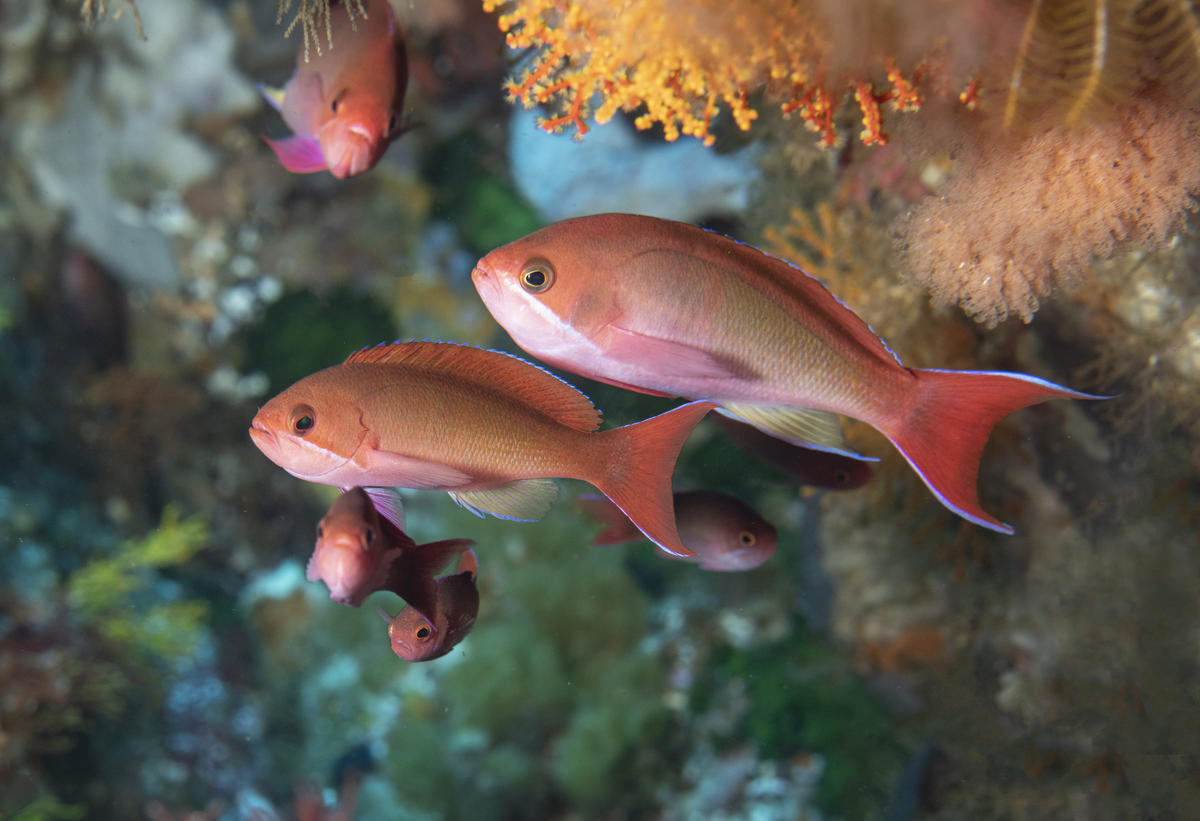
1. Strong outcomes for the first Oceans COP
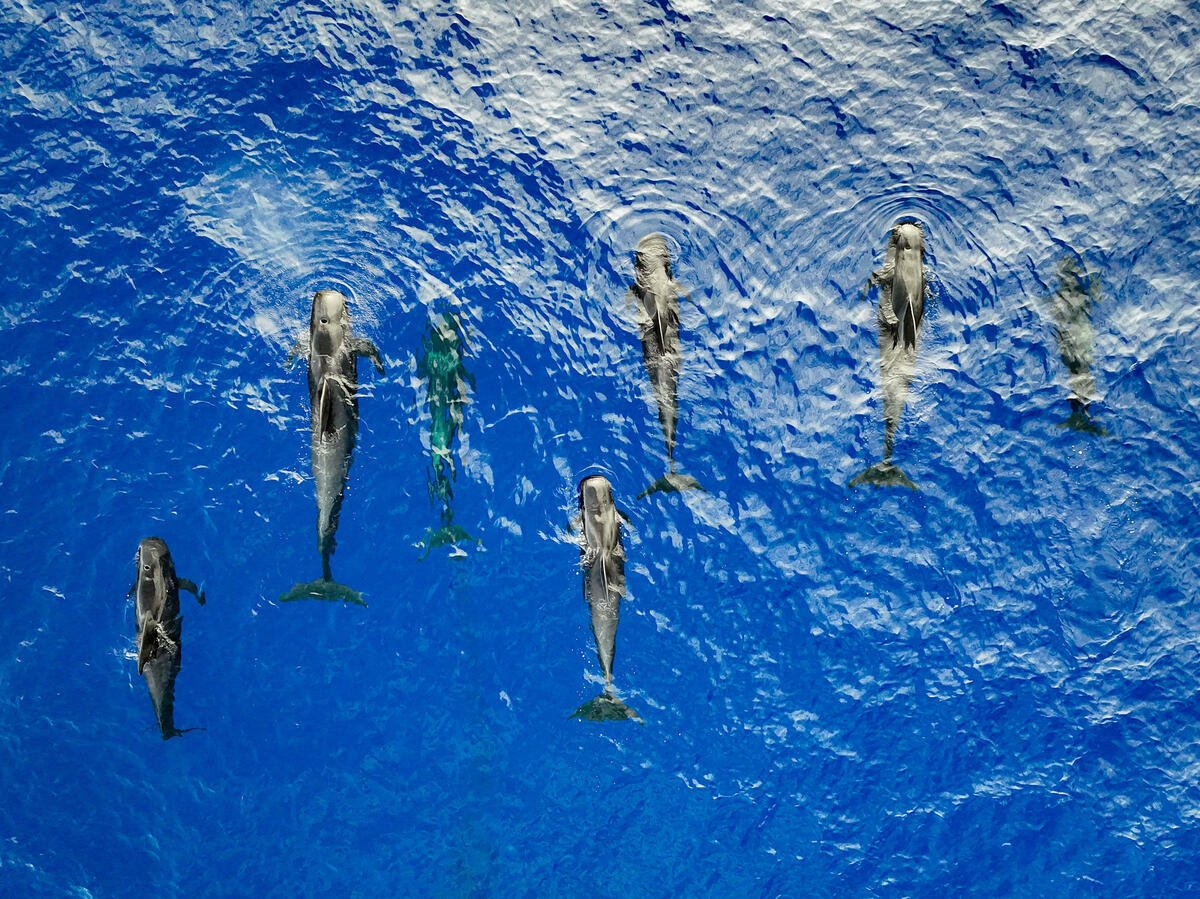
2. Real proposals for protecting the South Atlantic Ocean
3. Attention to coastal region elections
4. Suspension of the licence in the Amazon river mouth
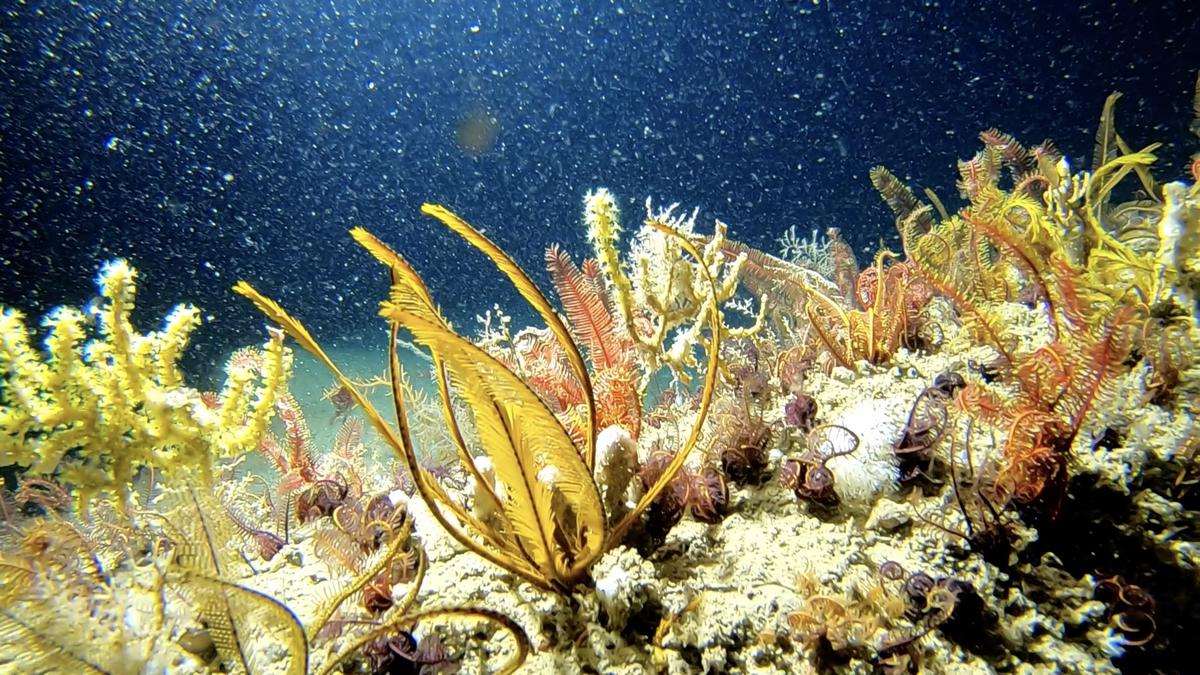
5. No mining in deep sea waters
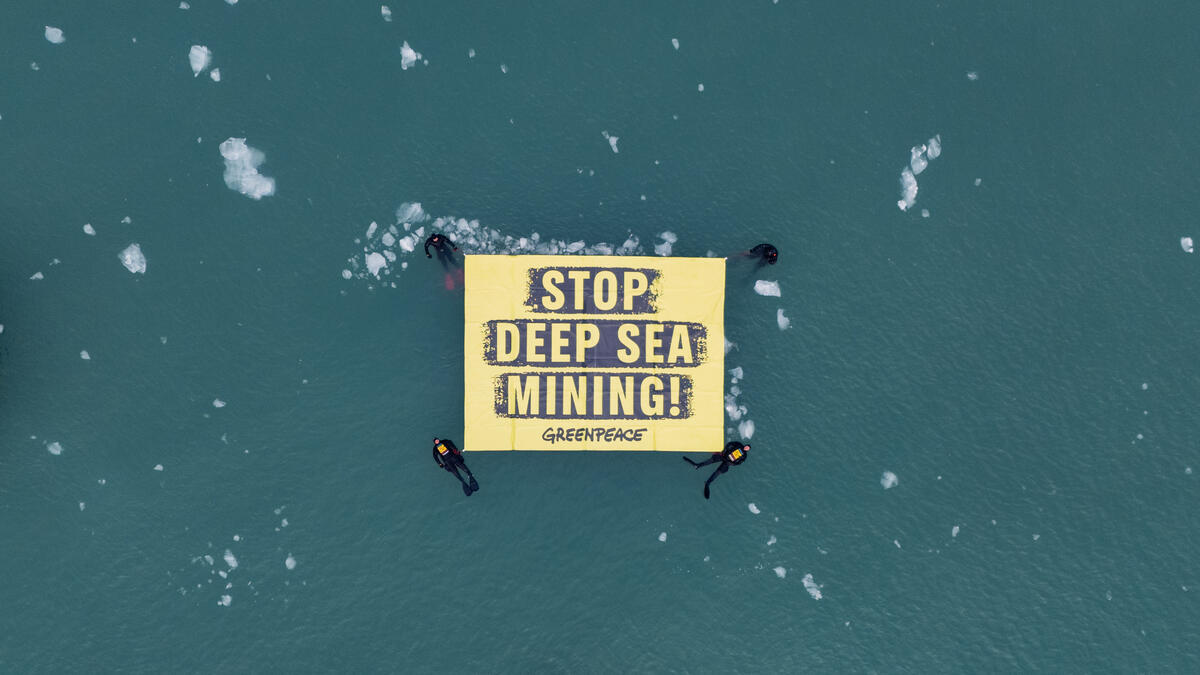
6. Combating plastic pollution in the oceans
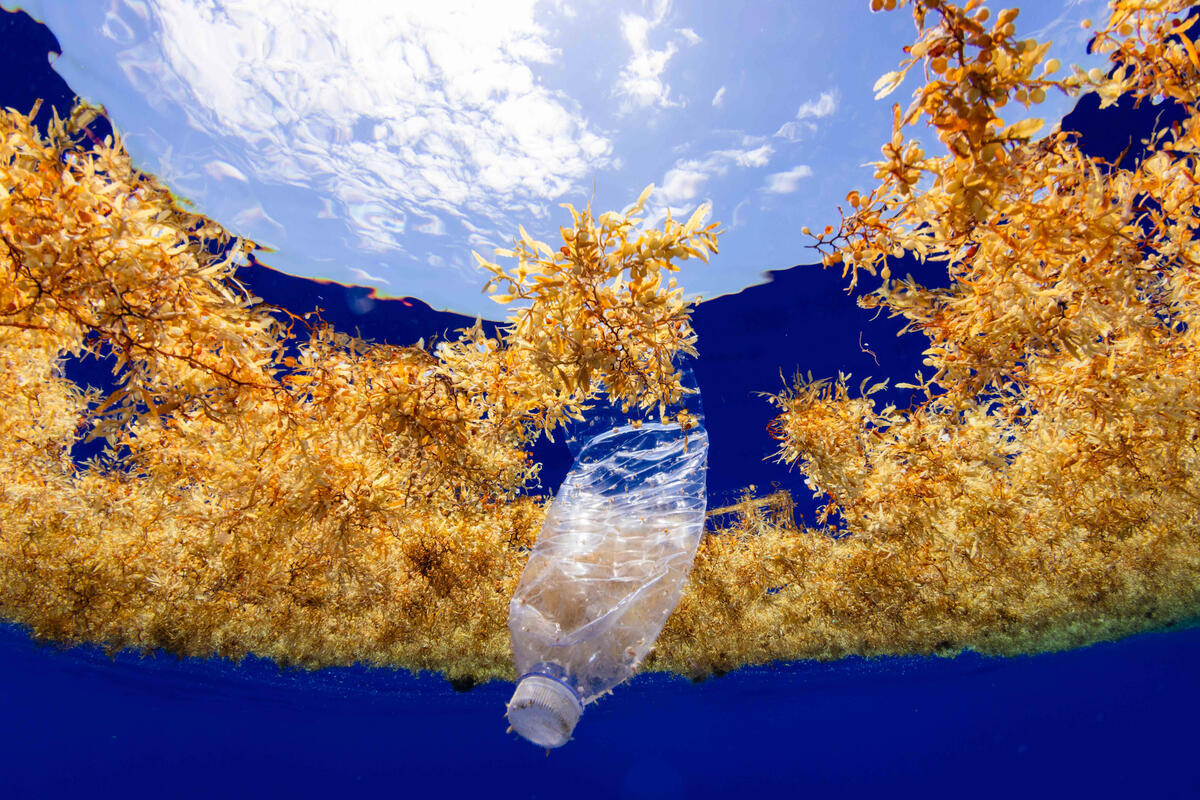
7. More space for whales to sing and to live
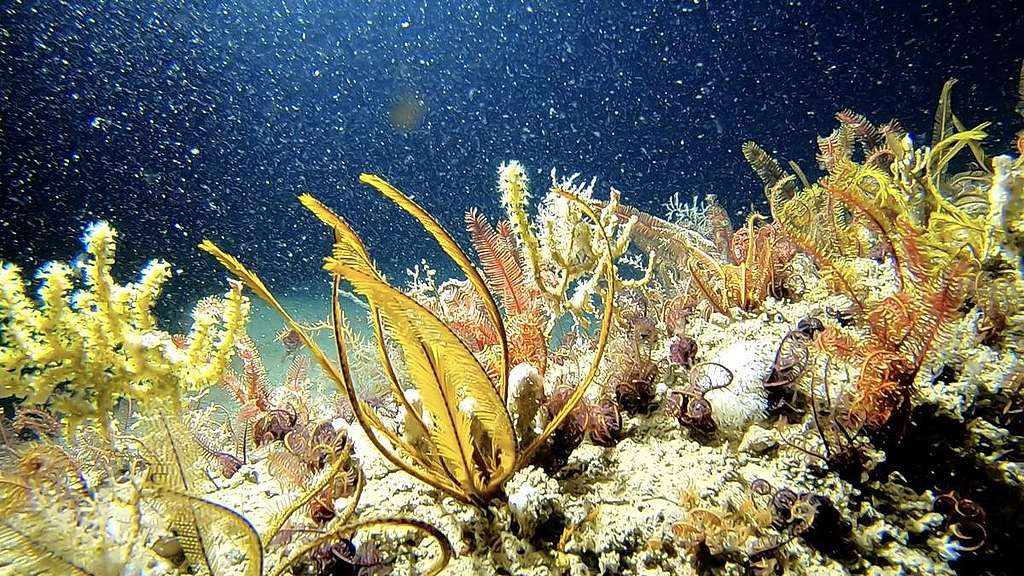
Greenpeace Pictures of the Week
Greenpeace International
The Grim Reaper at the Washington Post, a mobilisation against pesticides and many more actions around the world. Here are a few of our favourite images from Greenpeace work this week. Comment below which you like best! The Netherlands – Activists from Greenpeace Netherlands occupy the main terminal of Lelystad Airport, Netherlands. The group is calling on the new government to cancel plans for opening the airport to commercial leisure traffic. United States – Days after the Washington Post fired 300 journalists, including 14 full-time climate reporters, a Greenpeace activist dressed up as Jeff Bezos, the owner of the paper, stands in front of their flagship building on K Street in downtown Washington, DC. Bezos, one of the richest men in the world, also owns Amazon and AWS. Critics denounced Bezos cutting news and investigative staff while retaining its masthead slogan, “Democracy Dies in Darkness.” Gambia – The first day of public opening of the Arctic Sunrise took place on 5 February 2026 in Banjul, The Gambia. The day was marked by an official ceremony held on board, bringing together Gambian authorities, institutional partners, and representatives of civil society to mark the vessel’s arrival in Gambian waters. Germany – During the Munich Security Conference, Greenpeace activists protest with larger-than-life sculptures of US President Donald Trump and Russian President Vladimir Putin on Marienplatz in Munich. The two heads of government stand on a 10-metre-long model of a gas tanker with the words ‘Fossil Gas’ written on its side. Greenpeace activists hold banners reading ‘Safe energy instead of gas dependency’ and ‘Break Free From Tyrants’. France – 1,500 citizens, farmers, scientists, healthcare professionals, agrochemical victim collectives, and civil society organizations gathered in Paris to denounce the environmental and health setbacks caused by current agricultural policies, particularly the Duplomb Law being debated in the National Assembly. The citizen mobilisation continued with the “Cancer Anger” Citizen Choir and speeches by representatives of the associations, collectives, and organizations present. The Netherlands – Activists from Greenpeace Netherlands occupy the main terminal of Lelystad Airport, Netherlands. The group is calling on the new government to cancel plans for opening the airport to commercial leisure traffic. Germany – Greenpeace activists protest with the message ‘Break Free From Tyrants’ on a 90-square-metre banner on a crane in the early morning hours near the Munich Security Conference. The reason for the protest is Europe’s dependence on liquefied natural gas supplies from Russia and the United States. Both US President Trump and Russian President Putin use energy supplies as a means of exerting pressure. Greenpeace has been a pioneer of photo activism for more than 50 years, and remains committed to bearing witness and exposing environmental injustice through the images we capture. To see more Greenpeace photos and videos, visit our Media Library. Texte intégral (1546 mots)
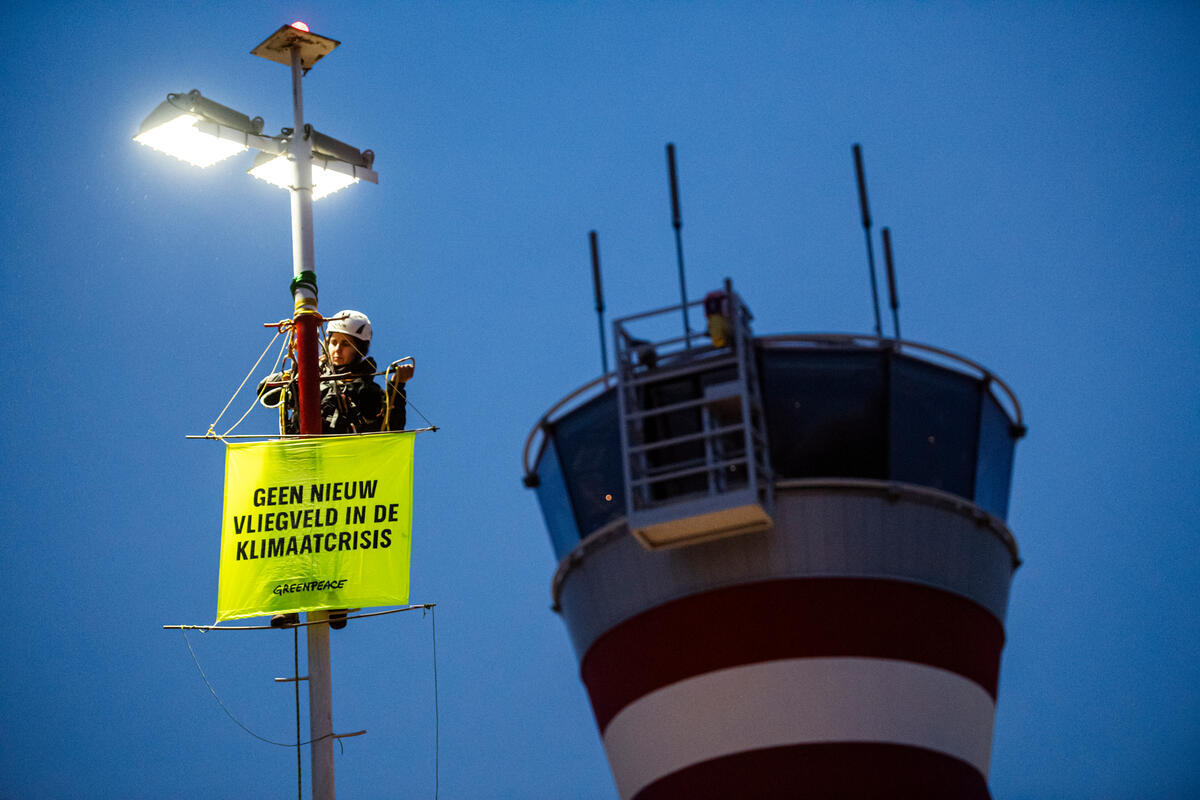
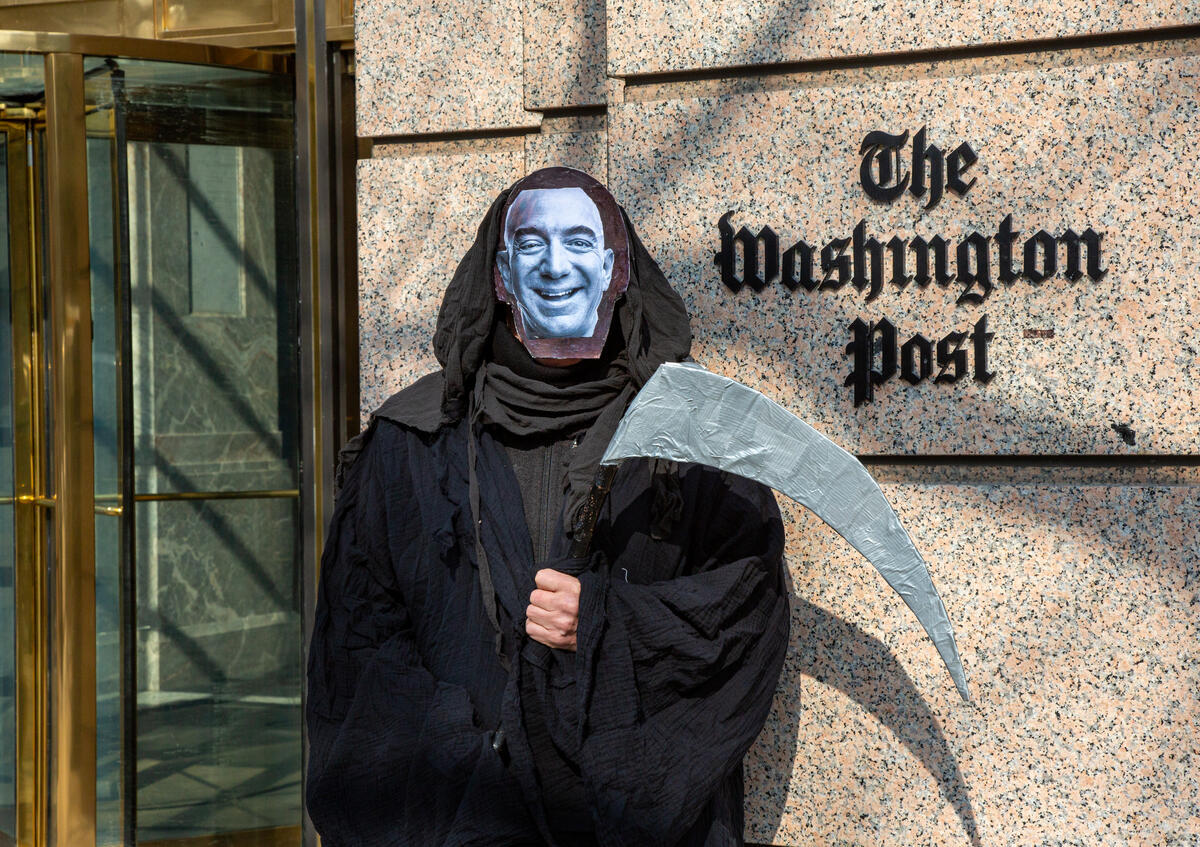
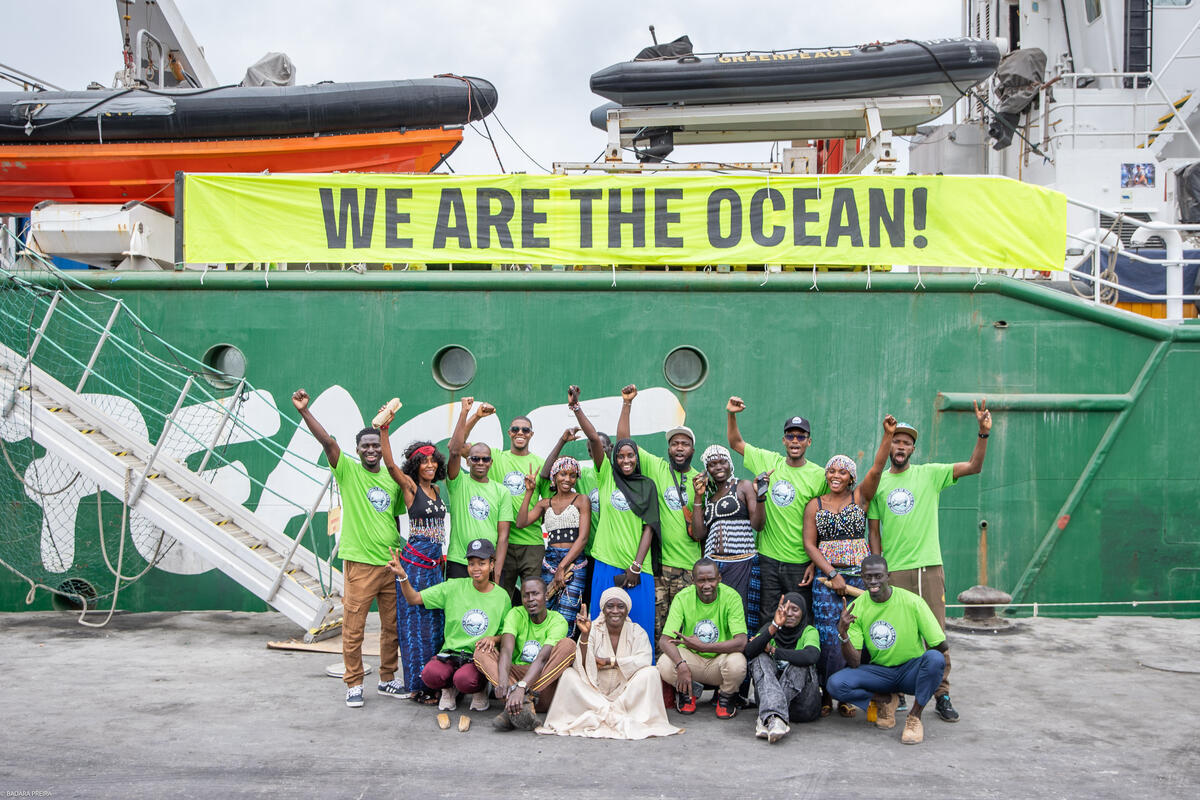
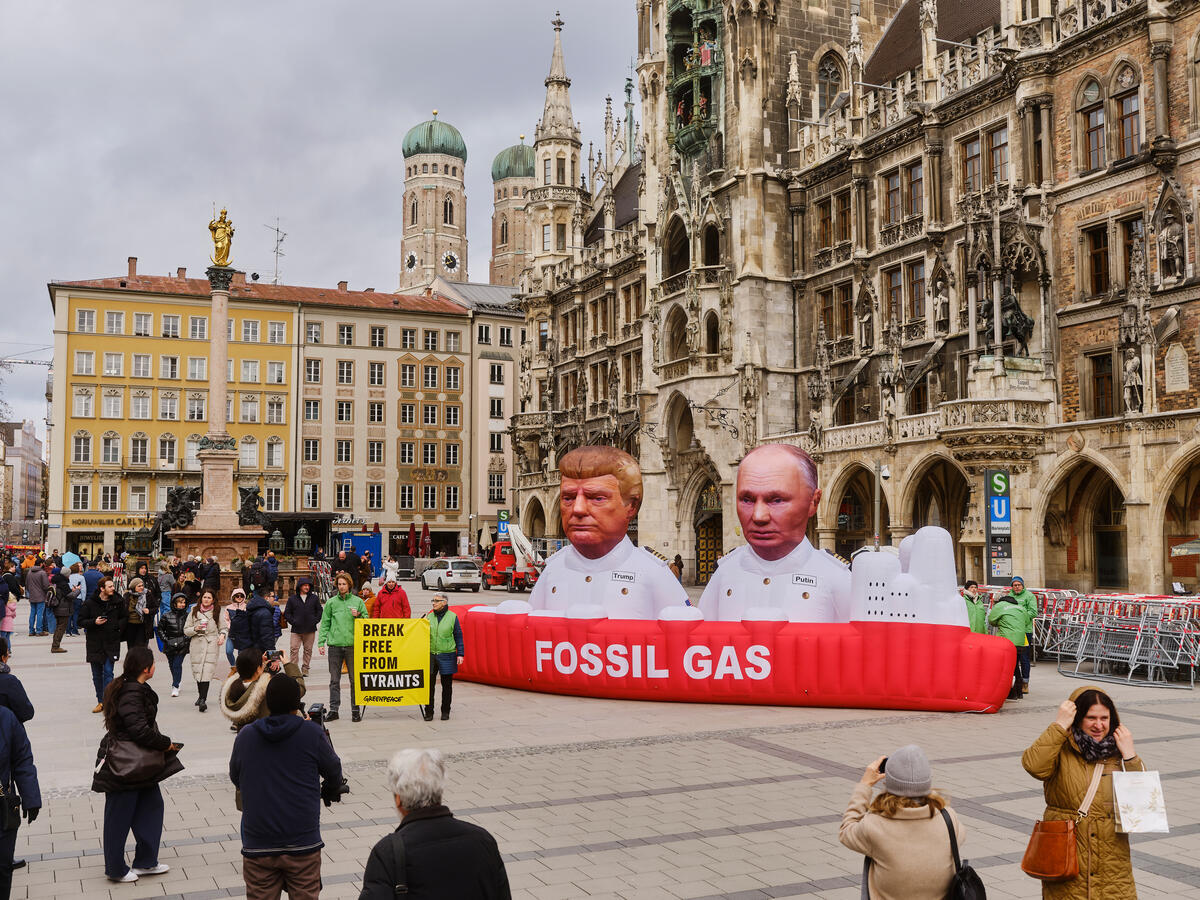
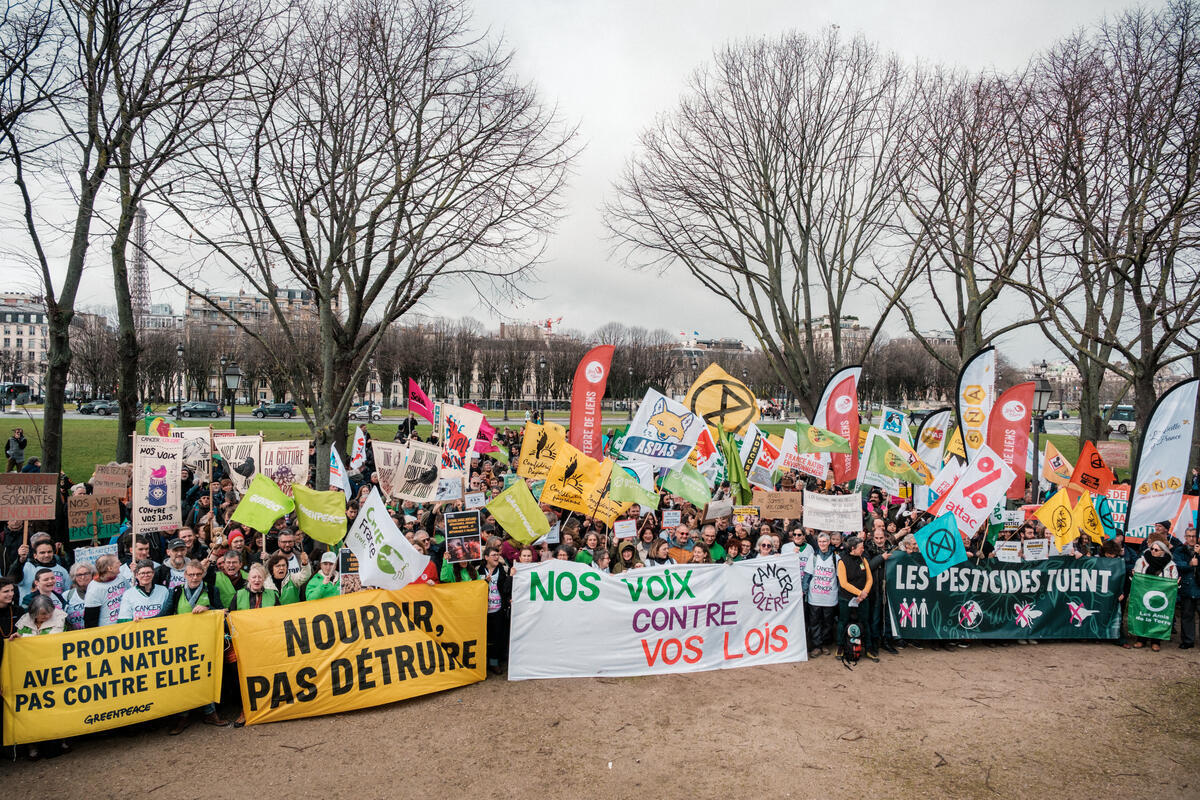
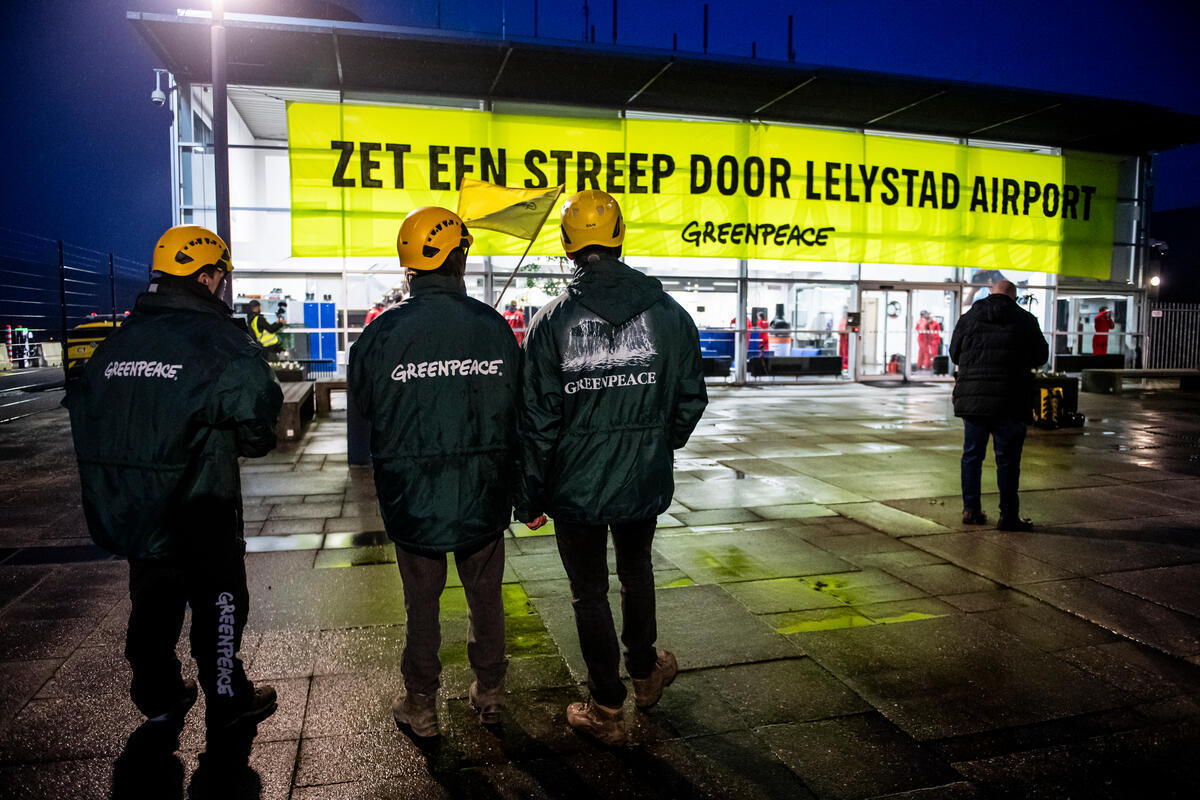
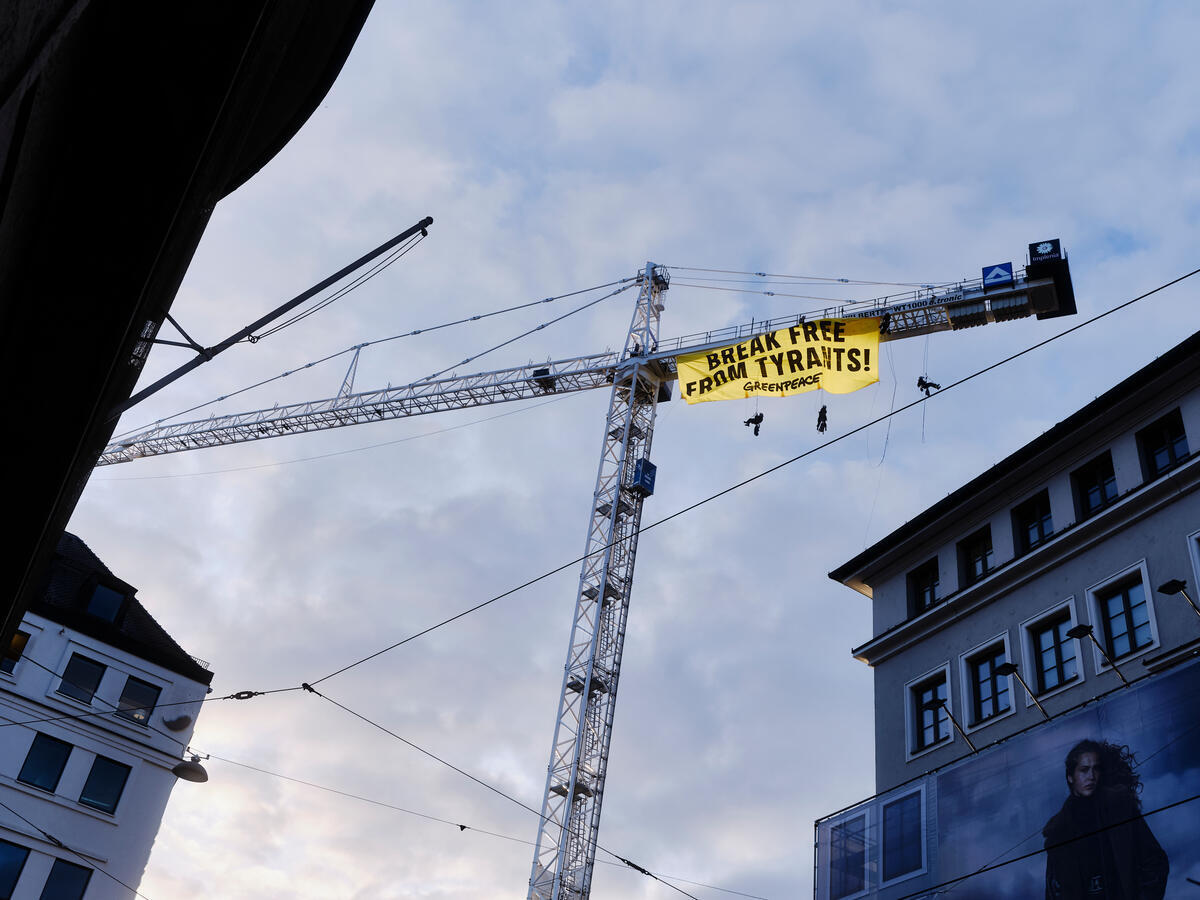
🌱 Bon Pote
Actu-Environnement
Amis de la Terre
Aspas
Biodiversité-sous-nos-pieds
🌱 Bloom
Canopée
Décroissance (la)
Deep Green Resistance
Déroute des routes
Faîte et Racines
🌱 Fracas
F.N.E (AURA)
Greenpeace Fr
JNE
La Relève et la Peste
La Terre
Le Lierre
Le Sauvage
Low-Tech Mag.
Motus & Langue pendue
Mountain Wilderness
Negawatt
🌱 Observatoire de l'Anthropocène

 (@greenpeace)
(@greenpeace)